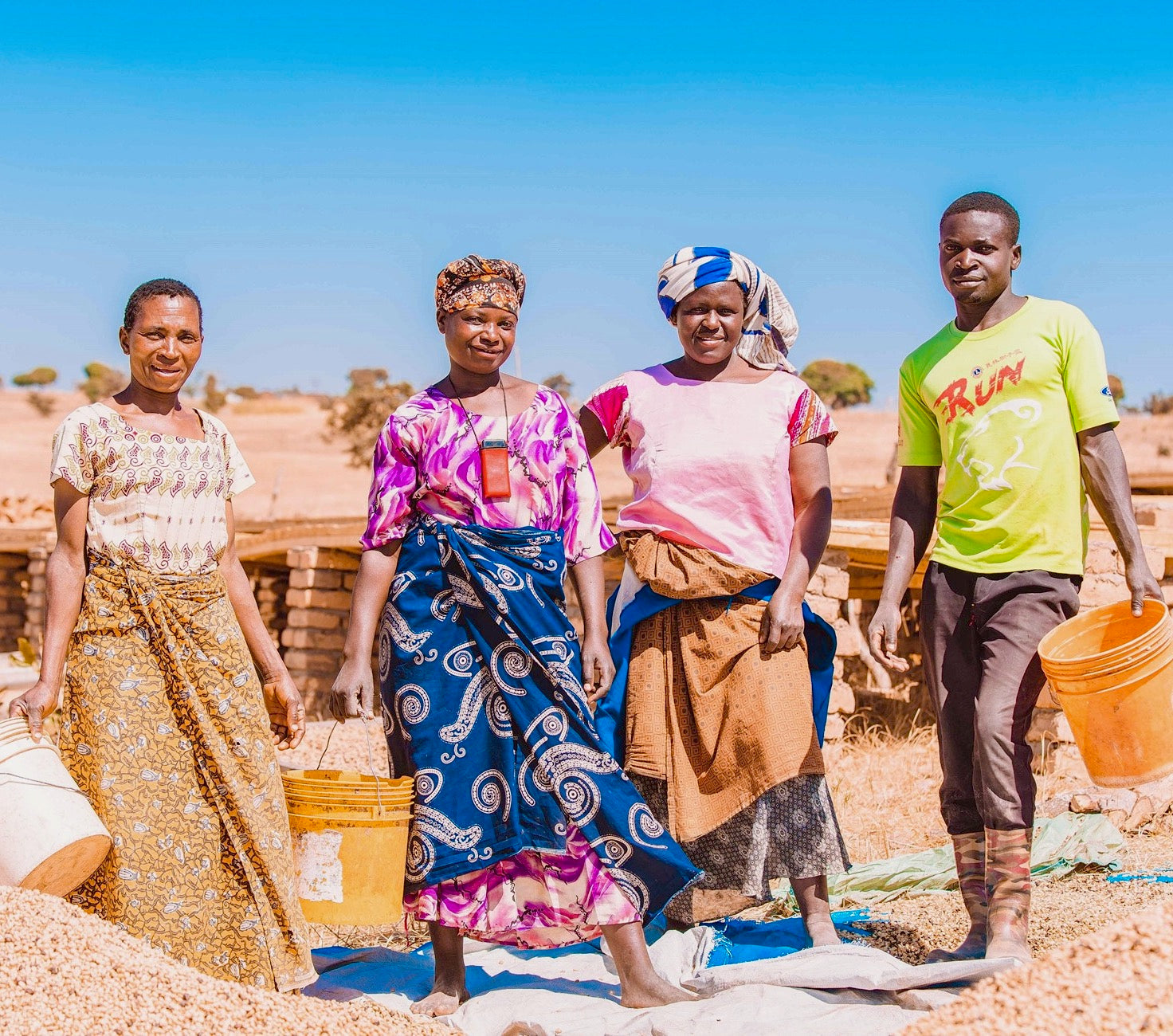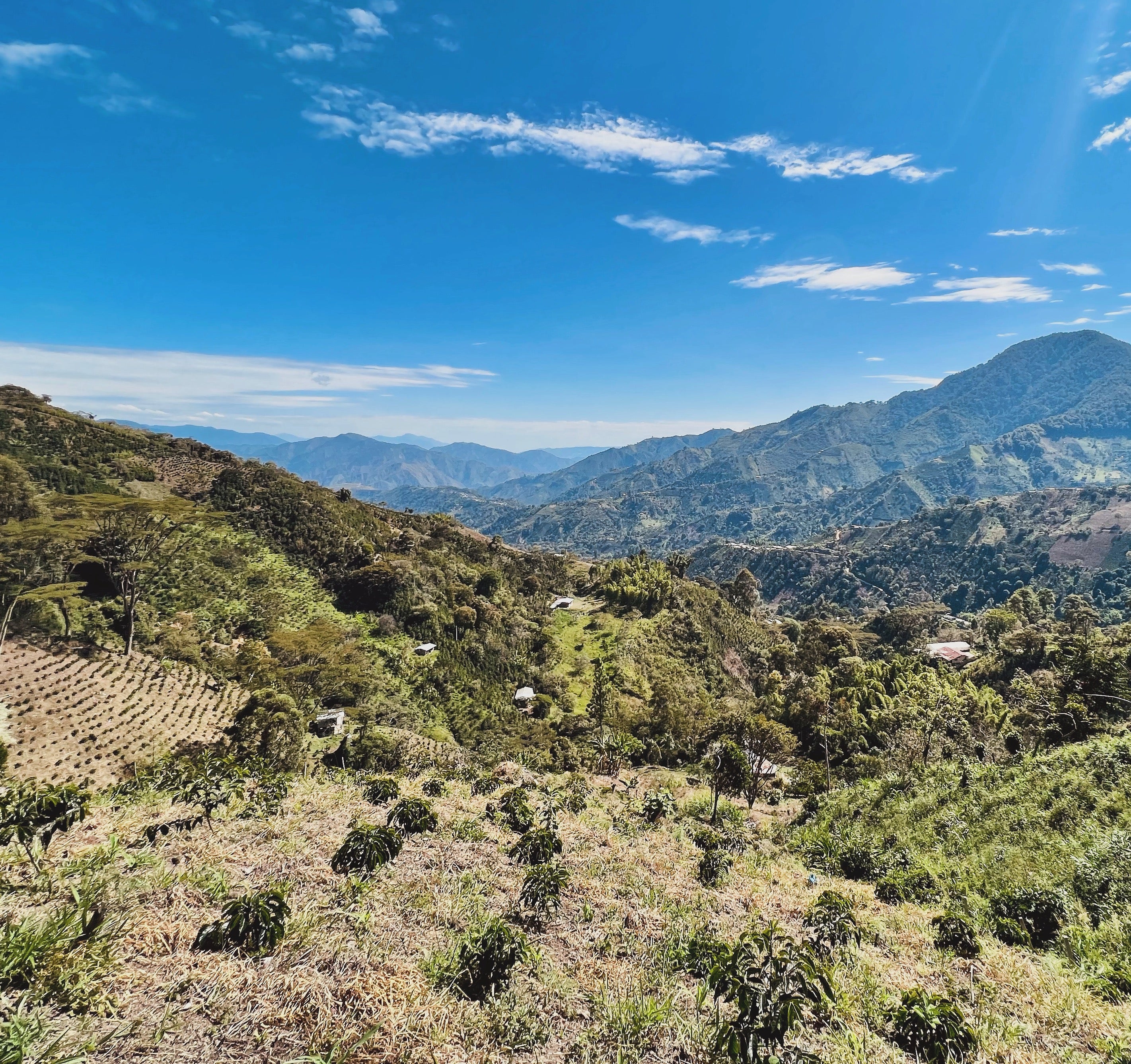Free UK shipping on all orders £18 and over
Argyll's Secret Roast - 12 months (Prepaid)
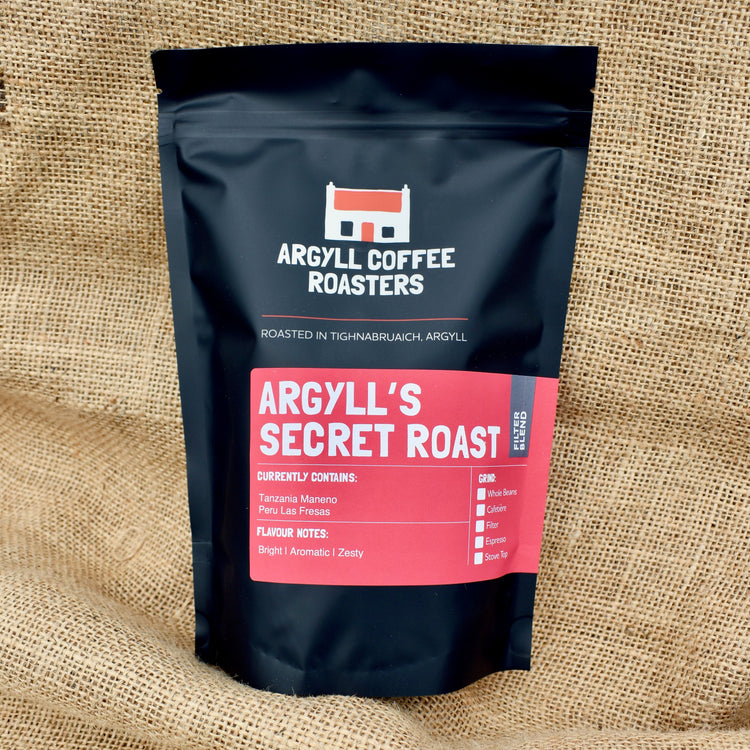
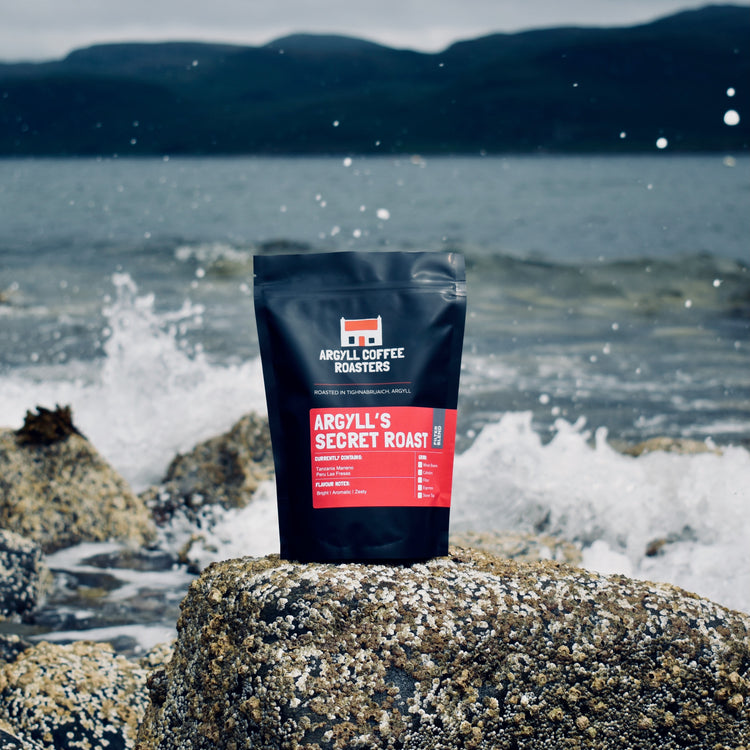
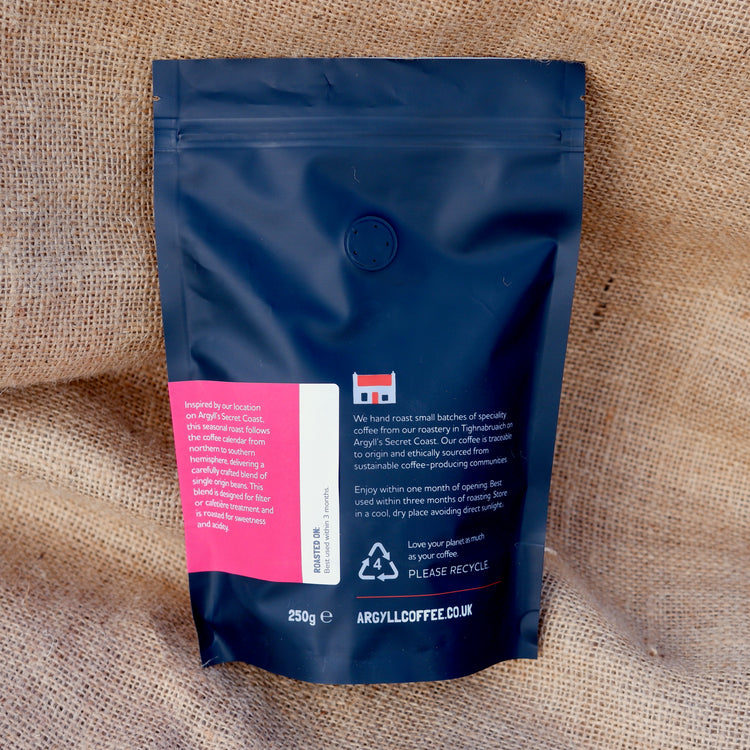
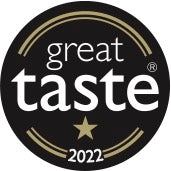
Argyll's Secret Roast - 12 months (Prepaid)
Buy a 12-month subscription up front and save 15% plus free delivery! This makes a perfect gift. Our award-winning seasonal roast from the west coast, inspired by our location on Argyll’s Secret Coast. This blend is intended for filter or cafetiere and is roasted for sweetness and acidity.
Couldn't load pickup availability
Product variants:
Select grind: (Need help? View Grind guide)
Description
Tanzania Isaiso AA
Farm:
Up to 421 smallholdings, averaging 1-2 hectares
Processing:
Washed
Owner:
Isaiso Agricultural Marketing Cooperative Society
Region:
Songwe
Varietal(s):
Kent, Bourbon, Compact
Altitude:
1,350 to 1,490 metres above sea level
Town:
Mbozi District
Colombia Edulis Huila Wet Mill Project
Farm:
30 to 50 smallholdings
Processing:
Washed
Owner:
30 to 50 smallholder farmers
Region:
Huila
Varietal(s):
Caturra, Colombia, Castillo
Altitude:
1,320 to 1,950 metres above sea level
Town:
Various
